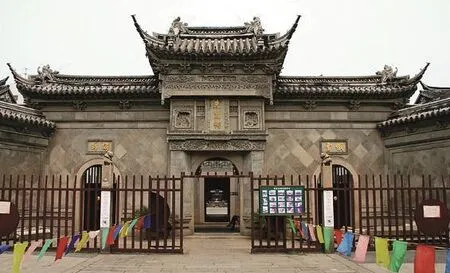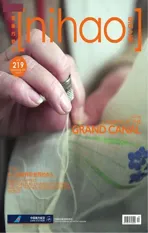Suzhou, the Silk Road begins from here
2017-09-03
Suzhou, the Silk Road begins from here

The temple for the goddess of the silkworm in Shengze Town.苏州盛泽先蚕祠是中国唯一留存至今的蚕神祠。
Each year during Grain Buds, when the 8th solar term of a year in the traditional Chinese lunar calendar comes, marking the commencement of the summer harvest, Suzhouers will have a special kind of folk activity - worshipping the goddess of the silkworm. To some extent, this is the beginning of the Silk Road.
Worship the Goddess of silkworm
lt is recorded that Leizu, a legendary Chinese empress and wife of the Yellow Emperor, discovered sericulture and invented the silk loom, which made her the goddess of the silkworm.
ln ancient times, people believed that the day of Grain Buds was the birthday of the goddess, and it had become a folk custom to worship her on that day, especially in places like Suzhou where silk is in abundance. People also established special temples for this worship ceremony. Usually, grand celebrations including special performances and giant feasts were organised by silkworm farmers and silk traders, in order to pray for a fl ourishing business. Among them, the celebration in Shengze Town of Suzhou has become a famous example of this annual event and has continued to be celebrated till now.
The temple for the goddess of the silkworm in Shengze Town was established during the period of Daoguang in the Qing Dynasty and was aweinspiring in size and design. lt is the only preserved temple dedicated to this goddess in China at present.
Connecting the Silk Road and Grand Canal
Suzhou is rich in silk production, and hence is the cradle of silk culture. Thanks to the Grand Canal and Suzhou Silk, Suzhou's silk culture has spread to all corners of the country and fl ourished ever since.
